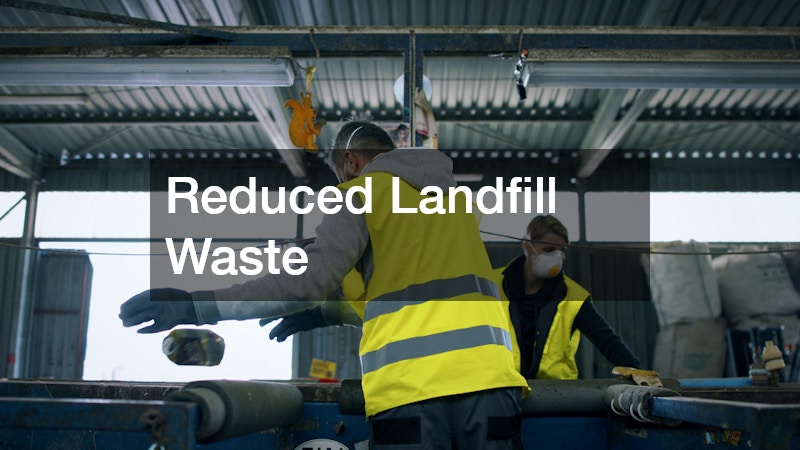Metal recycling has become an essential part of sustainable practices across Australia. As awareness of environmental issues grows, individuals and businesses alike are looking for more efficient ways to reduce their carbon footprint. Recycling metal is one such solution that not only conserves natural resources but also brings economic and environmental advantages.
Whether you’re a homeowner looking to declutter responsibly or a business aiming to streamline operations, understanding the key benefits of recycling metal can make a significant difference.
Below are the top three benefits of recycling—and why it’s worth considering in today’s climate-conscious world.
Environmental Preservation and Resource Conservation
One of the most important reasons to prioritise recycling is its environmental impact. Mining and processing raw metal ores require extensive energy and often cause long-term damage to natural landscapes. From deforestation and habitat destruction to water contamination and air pollution, traditional metal extraction has severe consequences for the environment.
Recycling metal, on the other hand, significantly reduces the need for raw material extraction. This helps preserve ecosystems and minimises the disruption to local wildlife. For example, recycled aluminium uses up to 95 per cent less energy compared to producing it from raw bauxite ore. Similarly, recycling steel reduces energy consumption by around 60–70 per cent.
Australia, with its vast natural resources and stringent environmental regulations, benefits immensely from a strong recycling industry. It ensures valuable materials are kept in circulation rather than ending up in landfill, where they contribute to pollution and wasted space. Recycling also supports the principles of a circular economy—where resources are reused, repurposed and recycled for as long as possible.
Economic Value and Job Creation
Recycling metal is not just an environmentally responsible choice—it’s also economically advantageous. The industry contributes billions of dollars annually to the Australian economy and provides employment to thousands of individuals across collection, processing and manufacturing sectors. By recycling metal, businesses can reduce costs associated with raw material procurement and waste disposal, while creating new revenue streams by selling scrap to recyclers.
Moreover, recycling generates economic activity at both local and national levels. From small-scale scrapyards in regional towns to major processing centres in metropolitan areas, the recycling supply chain supports a wide range of jobs. These roles are often more sustainable in the long term compared to those in extractive industries, which are susceptible to market volatility and environmental restrictions.
The industry also stimulates innovation and technological advancement. As demand for recycled metals grows, new systems and processes are being developed to improve the quality and efficiency of recycling efforts. This contributes to a more resilient and future-ready economy that’s less dependent on finite natural resources.
Reduced Landfill Waste and Lower Carbon Emissions
Landfills are a growing concern for councils and communities across Australia. Space is limited and the environmental impact of landfill waste—including leachate and methane gas production—is a pressing issue. Metals, which do not decompose, take up valuable space and pose long-term risks to soil and water quality. By recycling metal, you actively help reduce the burden on landfill sites.
In addition to saving landfill space, recycling plays a key role in cutting greenhouse gas emissions. The production of new metals from ore releases a significant amount of carbon dioxide and other harmful gases into the atmosphere. Recycling, by comparison, uses substantially less energy and emits fewer pollutants.
With Australia committed to reducing its national carbon emissions, efforts such as metal recycling are vital to achieving environmental targets. Individuals, households and businesses can all contribute by choosing to recycle scrap metal instead of discarding it. From aluminium cans and copper wiring to steel appliances and construction waste, almost all metals are recyclable—and most can be recycled indefinitely without losing quality.
Why You Should Start Today
Choosing to participate in recycling is a simple step with wide-reaching benefits. You’re not only reducing your own environmental footprint, but also supporting a local industry that creates jobs and drives innovation. More importantly, you’re contributing to a sustainable future for generations to come.
Recycling metal doesn’t require major changes to your lifestyle or operations. Many councils offer collection services and local scrap dealers are often willing to collect or accept metal waste at no charge. Businesses, especially those in construction, manufacturing or automotive sectors, stand to benefit the most by integrating metal recycling into their waste management systems.
As demand for sustainable practices grows, industries that embrace recycling are likely to be seen as more responsible, trustworthy and forward-thinking. Consumers increasingly prefer to support brands that demonstrate environmental stewardship and government regulations are evolving to favour businesses that reduce waste and emissions.
.




